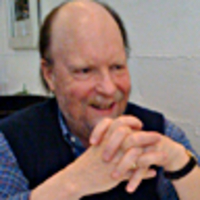
Forget instructions to do “this” when “that” happens with your children. This is not your parents’ parenting book, with specific recommendations to follow at various travails and childhood stages. It’s not even your older siblings’ parenting book about “what to expect.” NurtureShock: New Thinking About Children, by Po Bronson and Ashley Merryman, is almost aggressively anti-advice.
“We were fervently against giving recommendations,” Bronson stresses. “This is not like parenting manuals; we did not want our findings to be boiled down like that. That destroys the complexity of the scientific inquiry… We like to think of our book instead as ‘idea porn’—it’s filled with interesting ideas.”
“We like to think of our book instead as ‘idea porn’—it’s filled with interesting ideas.”
This provides NurtureShock’s most irresistible allure. In February 2007, a New York magazine cover story presented the first shocking findings by the book’s co-authors: that excessive praise can have negative effects on children. The piece set off a firestorm of interest and controversy, and a year later was still the most emailed story on the magazine’s Web site.
That award-winning article has now been significantly expanded into the opening chapter of NurtureShock, setting the approach and tone for nine other fascinating areas of inquiry, from teen rebellion and pre-school testing to racial and sibling differences, plus the early development of language skills. There are plenty of jolts for parents, such as the finding that youngsters are more likely to act violent after watching the PBS cozyfest of Arthur than the knock-em-sock-em adventures of Power Rangers. Or the finding that D.A.R.E., the popular anti-drug program in so many American high schools, has negligible long-term impacts.
NurtureShock may not include the usual to-do lists that make up parenting manuals, but many of the book’s findings are wakeup calls nevertheless—indeed, the research was a wakeup call for Bronson himself. Bronson and Merryman have been up to their eyelids in child-development studies for three years now, such dogged pursuers of this overlooked beat that they are usually the only journalists at the academic conferences where such papers are first presented. They read all the studies and keep the email lines buzzing back-and-forth with analysis and commentary between their homes in Los Angeles (Merryman) and San Francisco (Bronson).

Merryman, a lawyer turned writer/editor and operator of a tutoring program for inner-city kids, does not have children of her own. But Bronson, the author of such bestsellers as What Should I Do With My Life? is married to a scientist and has an 8-year-old son and a 5-year-old daughter. Parenting at the Bronson home has been greatly altered as dad turned child-development study specialist, and the changes they made underscore the wealth of helpful material for parents in NurtureShock.
Bronson, who says he’s become a less anxious parent because of his research, summarizes those changes: “I reversed how I praise my kids and I tell them stories differently, too. Another change is that I talk of success and failure, and always emphasize the work I have put in. I am not radically honest with them, but I do talk about the importance of honesty. And I talk about lying, since I’ve learned that it’s most often the result of trying to please people. Lastly, we talk about skin color explicitly and my wife and I have become totally comfortable with that.”
None of these changes were “difficult,” Bronson adds. He does concede that talking openly about race was counterintuitive, especially for liberal parents so committed to raising children without bias.
“That was the one chapter of the book that my wife read early and we talked about it a lot together,” says Bronson. “We thought that before we were doing the right thing by not discussing racial differences and then our kids would not notice that some people were not the same. They do notice, studies emphasize, and that is why it is better to talk openly about it.”
Bronson—whose casual attire of corduroy jeans, striped sweater, and cowboy boots does not disguise his intense drive and encyclopedic recall—sometimes pounds the coffee table for emphasis during an interview in his hometown of Seattle. He remains convinced that NurtureShock’s first chapter on the use and misuse of praise is its “most powerful,” serving as a stern rebuke to the estimated 85 percent of American parents who “think it’s important to tell their kids that they’re smart.” Studies cited by Bronson and Merryman have found that focusing praise on innate brainpower, rather than on the effort required to succeed, does not ensure future success—quite the opposite. Such praise creates chronic underperformers, students who shy away from risks and challenges out of fear of failure, a behavior pattern that stretches into high school and college.
Parents intent on changing their pattern of offering praise might justifiably wonder: Are these new findings on child development writ on the same shifting sands as the multitude of ever-changing, always-conflicting studies? These days of info-overload are filled with new findings on hazards or benefits, often contradictory, always confusing. Asked if he’s worried this will happen with NurtureShock, Bronson says he’s not.
“Findings on such things on caffeine, coffee, and red wine are all rip-and-read Associated Press-type stories based on the release of one study. Everything in our book has a 10-year track record and is the result of many different scientific studies.... I’m not worried about reversals, although there could be some refinements in the coming years with a lot more nuance provided by future studies.”
Plus: Check out Book Beast, for more news on hot titles, authors and excerpts from the latest books.
John Douglas Marshall was the longtime book critic for the Seattle Post-Intelligencer until it ceased publication in March.






